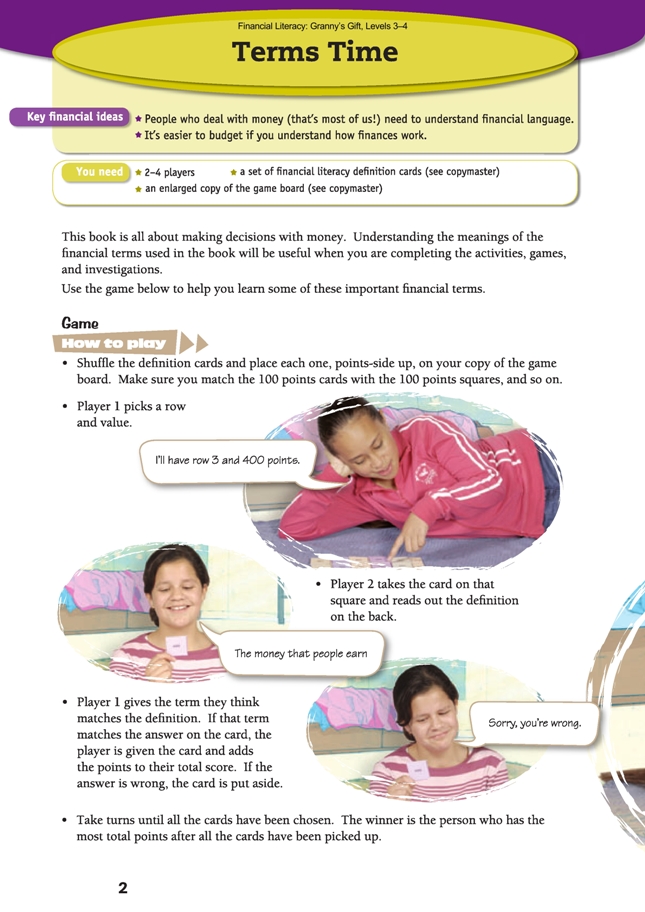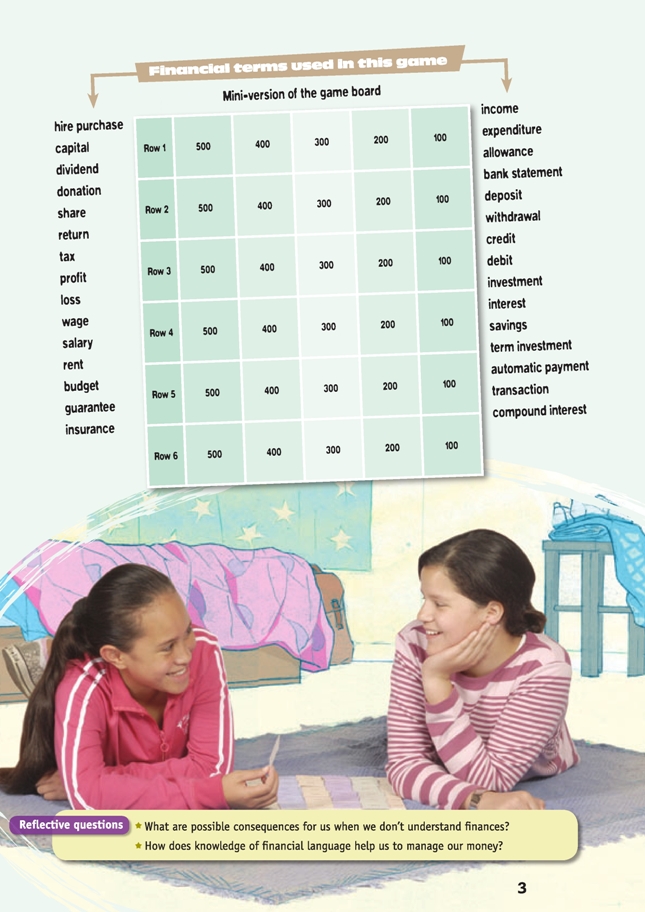This is a level 2 number activity from the Figure It Out series. It relates to Stage 5 of the Number Framework.
A PDF of the student activity is included.
Click on the image to enlarge it. Click again to close. Download PDF (1368 KB)
add hundreds numbers
Number Framework Links
This activity is appropriate for all students who are comfortable reading and adding up whole numbers, that is, students who are at stage 5 and above. When adding up their total score for the game, students will need to be able to add in hundreds
2-4 players
FIO, Level 3-4, Financial Literacy: Granny’s Gift, Terms Time, pages 2-3
An enlarged copy of the game board (see Copymaster)
Game
Financial understanding
This game helps students to learn about financial vocabulary as they discuss their ideas. The game is intended to familiarise students with terms they will encounter in the activities that follow. You will also have opportunities to clarify the meanings of these words in smaller chunks as they arise.
Don’t expect your students to get all the words correct initially because most of the terms will be new to them and some words (such as income and salary) seem very similar. The students may need to play the game a few times before they achieve much success. Encourage students who complete a large number of the activities
in this book to revisit this game at the end. They should find they now know many of the words and their meanings!
To increase the students’ chance of success with this game, you could give them the words on cards (see the copymaster provided for this purpose), perhaps with students working together in co-operative groups, and ask them to group the cards into categories of their own choice. Some may group the words into two piles – those that they are familiar with and those that they aren’t. Other students may split them into those that relate to spending money, those that relate to receiving money, and those that do neither. Encourage the students to think of new categories and regroup the words accordingly.
You could demonstrate the game to the whole class before they play in small groups. Have some students, in turn, read a definition from a card. Other students, in turn, guess which word it is describing (using the list of words around the board). You could then have a show of hands to express agreement or disagreement with the
guess. In the game, a player who gives the correct term for the definition keeps the associated points. You may decide to let the students use a dictionary as they play the game.
Extension
Use the words from the game to create a word wall to display the terminology that your students will encounter during the unit of work. The students could add other unfamiliar financial words to the wall as they encounter them.
Social Sciences Links
Achievement objective:
• Understand how people make decisions about access to and use of resources (Social Studies, level 3)
The students could discuss, as a class or group or at home, how money and the use of financial decisions impact on people’s access to resources.
Other Cross-curricular Links
English achievement objective:
• Language features: Use (a range of) language features appropriately, showing a developing/increasing understanding of their effects (Speaking, Writing, and Presenting, levels 3–4)
The terms in the game could form part of your class’s spelling programme. The students could generate word finds and/or crosswords to reinforce the terminology.
Answers to Activity
A game involving financial language. (A table of the terms and their definitions is provided as a copymaster on page 53.)

